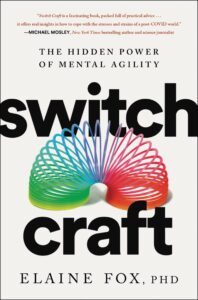Understanding Intuition: The Role of Gut Feelings in Decision-Making

Understanding intuition is a fascinating journey into the mind’s ability to process information. Research in psychology reveals that intuition is not just a whimsical notion but a legitimate cognitive process. When we rely on our gut feelings, our brains are drawing on a wealth of past experiences and subtle environmental cues to make decisions—often without our conscious awareness.
The Science Behind Intuition
A landmark study illustrates this concept effectively. Participants were asked to select cards from two distinct decks, one of which was designed to yield high rewards but also significant losses, while the other provided modest gains with minimal risk. Remarkably, it took around eighty attempts for participants to recognize the difference between the two decks. Yet, even after just ten cards, many sensed which deck was more perilous. This instinctive recognition was linked to a physiological response known as the galvanic skin response, where increased perspiration indicated heightened anxiety when selecting from the risky deck.
Intuition as a Silent Guide
This instinctual awareness allows us to navigate complex situations efficiently. Intuition can be thought of as our subconscious mind providing a quick summary of the circumstances at hand. These subtle hints often go unnoticed but play a critical role in helping us interpret our surroundings. This “gut feeling” is not merely emotional; it’s a form of knowledge acquired through experience, allowing us to grasp cultural nuances, especially in unfamiliar environments.
Personal Experience: A Cultural Awakening
Take, for instance, my move from Dublin to New Zealand for my first academic position after completing my PhD. Though both countries share similar cultural traits, I quickly encountered a culture shock. I learned, often the hard way, that joking about rugby—an adored sport in Ireland—was akin to making light of a national treasure in New Zealand. This understanding didn’t come from direct instruction but rather through observation and social cues. My instincts guided me toward what was socially acceptable in my new home, demonstrating the power of intuitive knowledge.
The Mechanics of Intuition
Intuition operates as an extension of our cognitive functions, significantly shaped by our life experiences. Our brains constantly gather and analyze information, comparing it to our vast repository of past encounters. For example, spotting a familiar face in a dimly lit environment can trigger instant recognition, even when the details are unclear. This ability to glean critical insights from minimal data is known as “thin slicing” and underscores the importance of first impressions. In one study, students evaluated professors based on a brief ten-second video clip, and their initial assessments remained remarkably consistent even after two years of interaction.
The Role of Tacit Knowledge
Intuition is often linked to tacit knowledge—skills and insights we acquire without deliberate instruction. Consider how we learn social customs or language as children. Native speakers grasp grammatical rules intuitively, even if they can’t articulate them. This knowledge becomes evident only when we engage in relevant tasks, be it riding a bicycle or quickly reacting to an unforeseen event.
Decoding Gut Feelings
While intuition can be an invaluable asset, it is not infallible. Our gut feelings may not always lead us to correct conclusions; their purpose is not to provide clear-cut answers. Instead, they enhance our decision-making by highlighting significant aspects of our environment. For instance, in a study I conducted where participants viewed images of facial expressions, those displaying anger captured attention more effectively than happy faces. Even when the angry images were flashed too quickly for conscious recognition, they still influenced participants’ focus, underscoring the role of intuition in assessing potential threats.
Balancing Intuition and Rational Thought
Albert Einstein famously remarked on the duality of intuition and rational thought, emphasizing the importance of both in our decision-making processes. Intuition serves as a guide, encouraging us to assess situations before delving into logical analysis. Understanding this balance is vital, particularly in rapidly changing environments where both instinctive perceptions and rational thought are required for effective decision-making.

